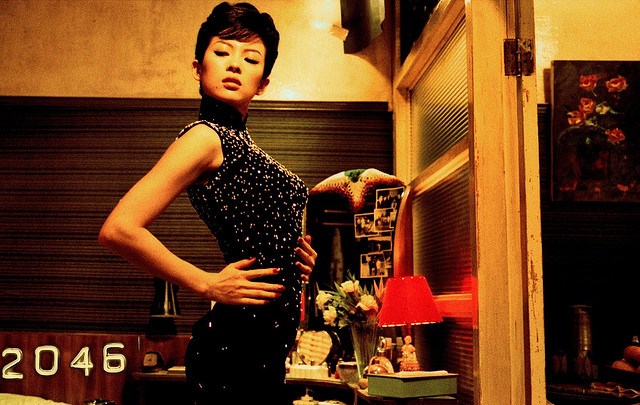|
The Breadcrumbs widget will appear here on the published site.
The Artful Noodle StandPeriod dramas are a genre of film that many directors go to when they want to use the past to highlight or analyze a political or social issue that rings true to this day. This can be from using the Salem Witch Trials to make a criticism of the Red Scare (The Crucible) or using a mutiny as a piece of propaganda twenty years after the event (Battleship Potemkin). By looking to the past, a film director and/or screenwriter can look at how little time has changed. This allows them to use nostalgia as a tool for discussion and reflection. The 2001 Hong Kong film In the Mood for Love (Fa yeung nin wa) is a film that, while set in the 1960s, brings to light how people look at relationships and the troubles that come from opening yourself up to another person. The film is about a man and a woman, Mr. Chow (Tony Leung) and Mrs. Chan (Maggie Cheung), who each rent a room in an apartment with their spouses. The two of them deal with their spouses going on long business trips and working late. However, the two realize their spouses must be having an affair. The two attempt to figure out how such an affair could have started, with the couple recreating the scenes they think occurred, while also trying their hardest to not fall into an affair themselves. The film is interesting because it uses the period of the film, an era were Hong Kong underwent political and social change, and uses it to comment on factors that can still be found in the present. The director, Wong Kar-wai, shoots the film with a wonderful eye for detail. There are plenty of scenes shot in slow motion, focusing on the brightly colored walls and lingering on the blank canvasses that are the faces of the leads. The style is dreamlike, turning a trip to the local noodle stand into a work of art. This all works perfectly to tell the story of the characters. Both Mr. Chow and Mrs. Chan are lonely, introverted people. Even though they each have rooms in a communal apartment, both prefer to eat alone in their bedrooms. The world of In the Mood for Love is similarly empty. We never see the faces of their spouses, most scenes in public places are devoid of people, and very few characters have full names. It's a city where people prefer their solitude, and can even go out of their way to avoid direct contact with one another. Still, what really makes this film work is the two leads. Both Leung and Cheung sell their parts, each giving an emotional performance that makes them both very sympathetic. They attempt to have a relationship of some kind, yet try their hardest not to get too close to one another. To them, having an affair would make them no better than their spouses. They attempt to get around this by writing a martial arts serial together, but ultimately their feelings for one another become to difficult to deal with. In the Mood for Love is one of the best films from Hong Kong and is probably Wong Kar-wai's magnum opus. It's a meditative film about the nature of relationships, but is also a very Chinese film, a perfect representation of the cinema from the nation. The themes and motifs in the story are still relevant today, giving the film a very universal quality. The story could have been set in 2001 or 2046 (which is when Wong Kar-wai's next film, 2046, would be set, continuing the story of this film) and it would still have just as great an impact as it does. It's a story that is so perfect that it will surely be Wong Kar-wai's best remembered film. #Film #FilmReview #InTheMoodForLove #PeriodFilm #HongKong
CommentsComments are closed.
|
|








